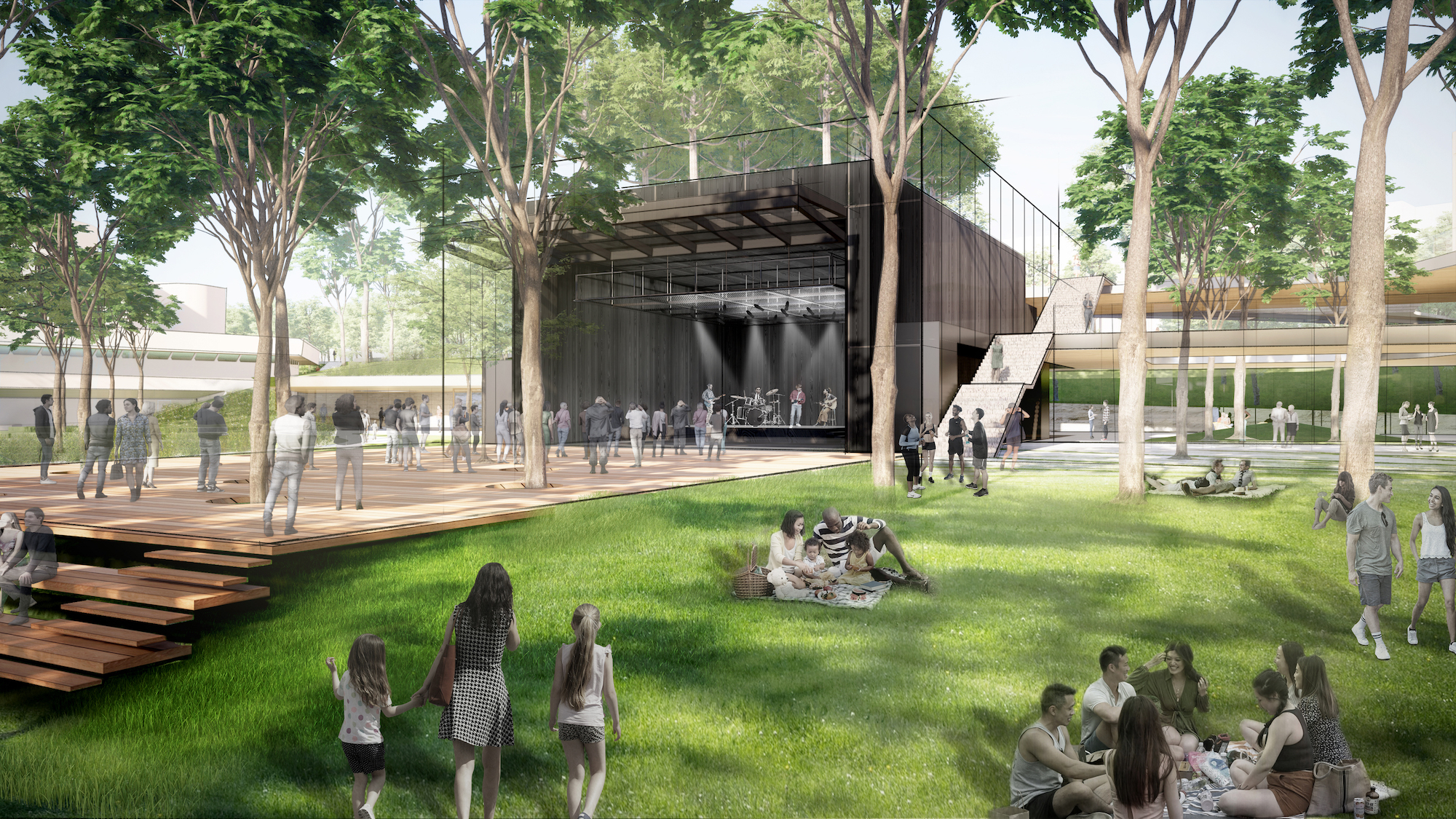Diller Scofidio + Renfro recently presented plans to restore the Kalita Humphreys Theater at the Dallas Theater Center (DTC) in Dallas. Originally designed by Frank Lloyd Wright, this theater is the only freestanding theater in Wright’s body of work, DS+R said in a news release. “The Kalita Humphreys Theater is a mid-century architectural masterpiece in need of a thoughtful update after several generations of cultural, technological, and urban change,” says Kevin Moriarty, DTC’s artistic director.
“Over the years, a combination of neglect and additions have compromised the building’s integrity,” the release says. “Restoring the Kalita Humphreys Theater to its original state requires a multifaceted approach that involves surgical extraction, selective reconstruction, careful preservation, and faithful reinterpretation of Wright’s design intent.”
The design plan calls for removal of superfluous elements added over time, including the 1968 lobby extension that compromised the original massing of the building. Architectural details will be refurbished, including mid-century light fixtures, air grilles, door handles, window moldings, and furniture.
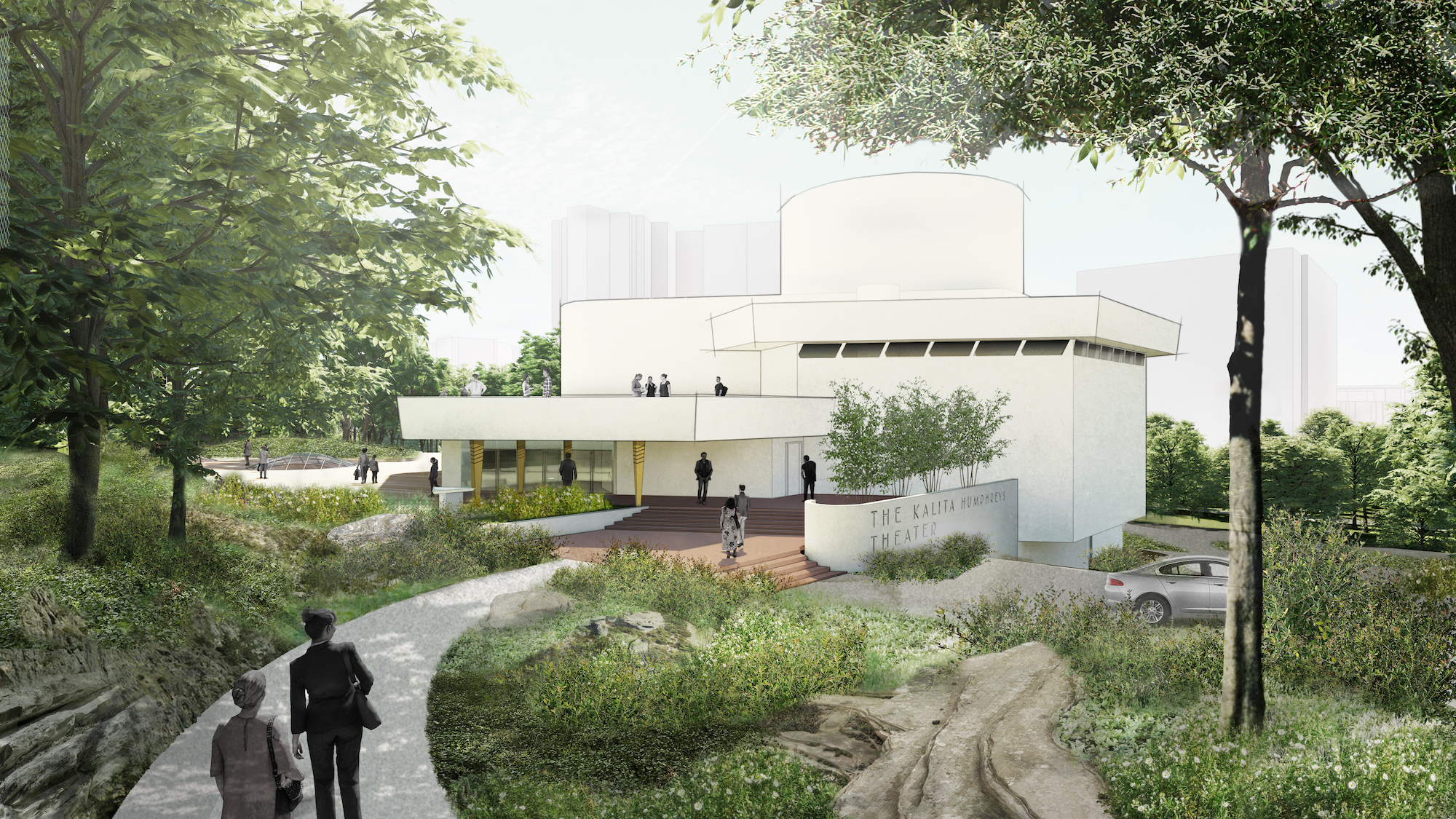
The building will undergo modernization including upgraded lighting, AV, stage infrastructure, and other back-of-house functions to improve flexibility for a wider range of performances. Seating will be re-raked to resemble the 1959 auditorium, but each row will be staggered to improve sightlines. A central information point and historical center in the campus lobby will orient and engage visitors.
The theater’s surrounding landscape will get a makeover to make the site more engaging throughout the day. Over the years, the bucolic setting has been fragmented by large parking lots and a tangle of roadways. Bluffs removed as part of the 1968 addition are irrecoverable, but a lightly reshaped landscape will echo the original topography. Invasive bamboo will be removed in favor of native grasses and shrubs, helping to control erosion and absorb runoff. Improved visual and physical linkages will provide connections to adjoining trails.
New courtyards and plazas, upper-level green roofs, a bosque, walkways, and a restaurant and café will be constructed. A 100-seat black box theater with a walkable ceiling grid and an operable façade will open onto one of the courtyards, creating an indoor/outdoor venue with flexible seating configurations. A multipurpose pavilion will offer a flexible infrastructure for formal and informal events, including public classes and workshops. More cellular spaces in the rehearsal and education ‘tower’ will house small, immersive productions.
Also on the project team:
Design Architect: Diller Scofidio + Renfro, (Partner-in-Charge: Charles Renfro)
Local Architect: BOKA Powell
Landscape Architects: Reed Hilderbrand
Historic Preservation: Harboe Architects
Structural Engineer: Robert Silman Associates
Civil & Traffic Engineer: Pacheco Koch
Mechanical, Electrical & Plumbing Engineer: Syska Hennessy Group
Construction Manager: Beck Construction
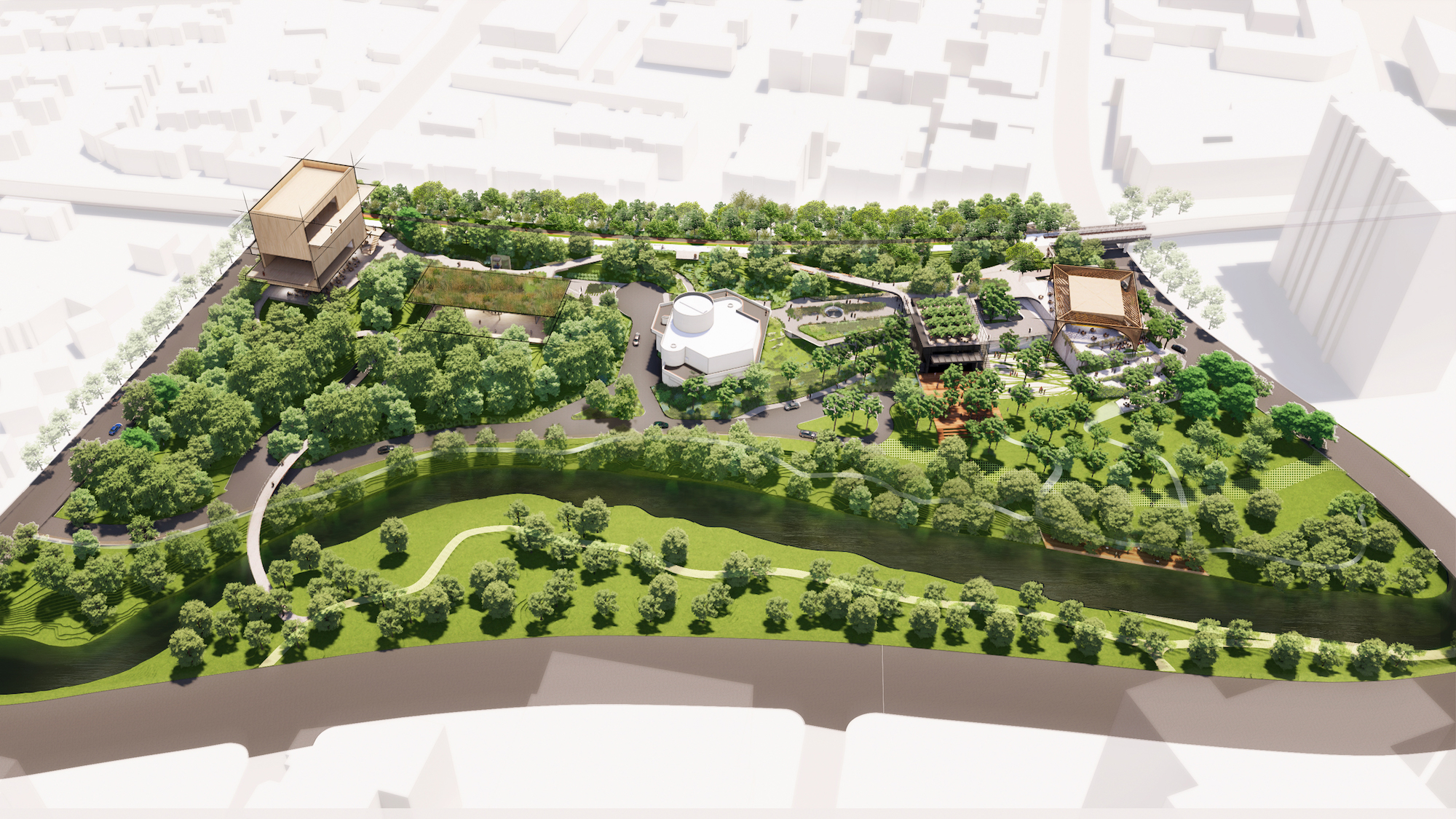
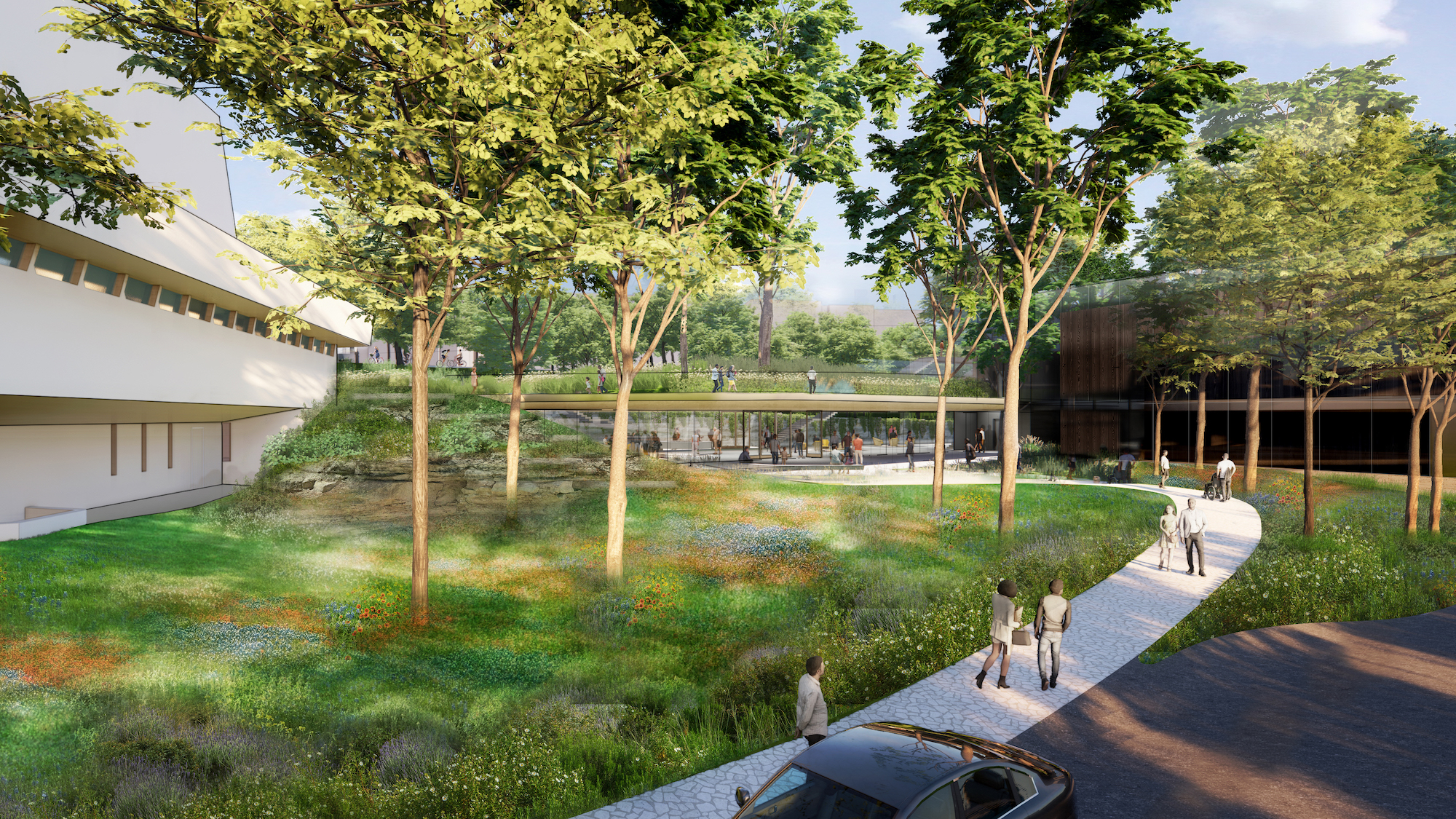
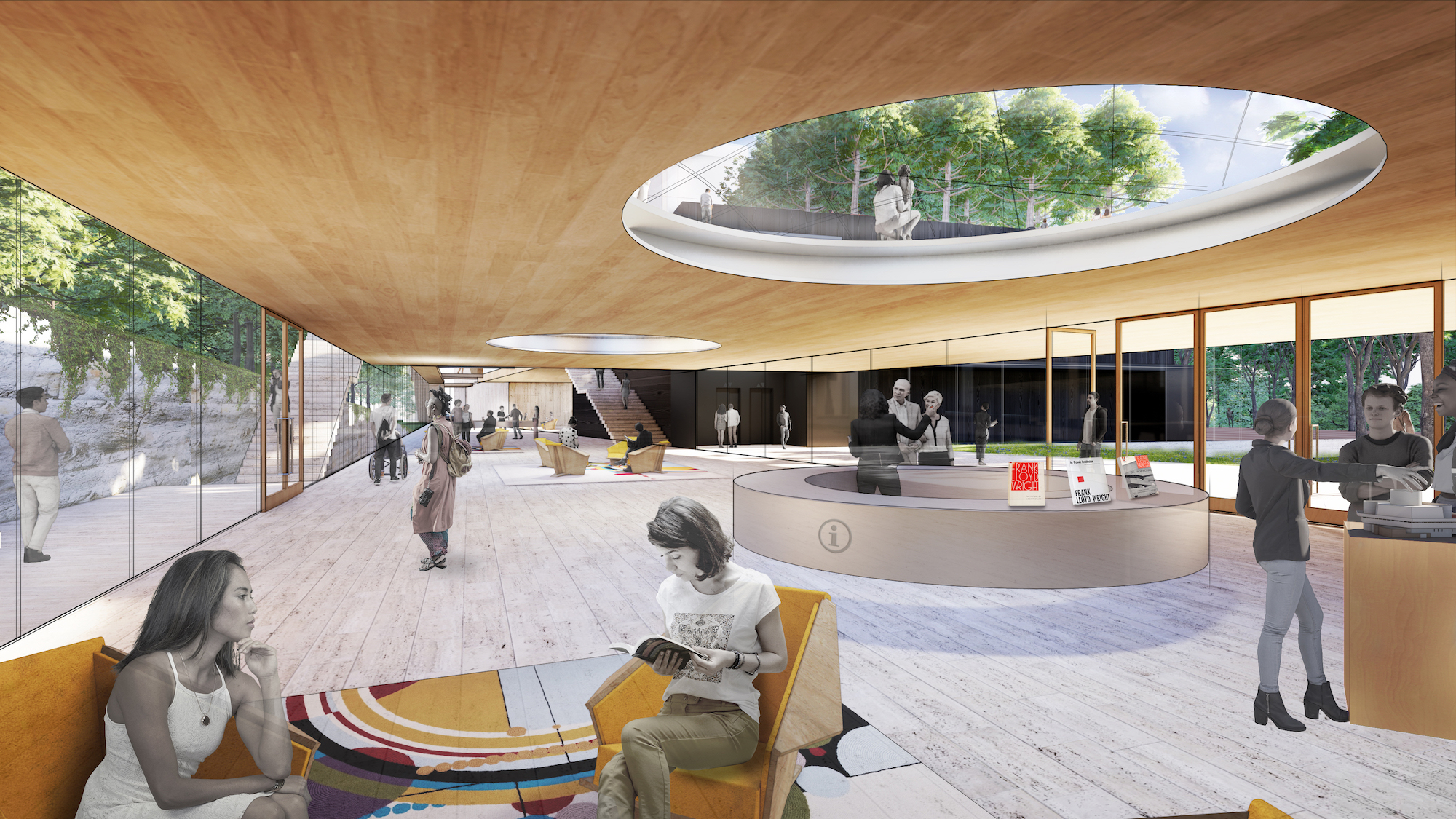
Related Stories
| Aug 11, 2010
Curtain rises on Broadway's first green theater
The Durst Organization and Bank of America have opened New York's first LEED-certified theater, the 1,055-seat Henry Miller's Theatre. Located inside the new 55-story Bank of America Tower at One Bryant Park, the 50,000-sf theater is located behind the preserved and restored neo-Georgian façade of the original 1918 theater.
| Aug 11, 2010
Restoration gives new life to New Formalism icon
The $30 million upgrade, restoration, and expansion of the Mark Taper Forum in Los Angeles was completed by the team of Rios Clementi Hale Studios (architect), Harley Ellis Devereaux (executive architect/MEP), KPFF (structural engineer), and Taisei Construction (GC). Work on the Welton Becket-designed 1967 complex included an overhaul of the auditorium, lighting, and acoustics.
| Aug 11, 2010
Gold Award: Eisenhower Theater, Washington, D.C.
The Eisenhower Theater in the John F. Kennedy Center for the Performing Arts in Washington, D.C., opened in 1971. By the turn of the century, after three-plus decades of heavy use, the 1,142-seat box-within-a-box playhouse on the Potomac was starting to show its age. Poor lighting and tired, worn finishes created a gloomy atmosphere.
| Aug 11, 2010
Giants 300 University Report
University construction spending is 13% higher than a year ago—mostly for residence halls and infrastructure on public campuses—and is expected to slip less than 5% over the next two years. However, the value of starts dropped about 10% in recent months and will not return to the 2007–08 peak for about two years.
| Aug 11, 2010
Bowing to Tradition
As the home to Harvard's Hasty Pudding Theatricals—the oldest theatrical company in the nation—12 Holyoke Street had its share of opening nights. In April 2002, however, the Faculty of Arts and Sciences decided the 1888 Georgian Revival building no longer met the needs of the company and hired Boston-based architect Leers Weinzapfel Associates to design a more contemporary facility.
| Aug 11, 2010
Team Tames Impossible Site
Rensselaer Polytechnic Institute, the nation's oldest technology university, has long prided itself on its state-of-the-art design and engineering curriculum. Several years ago, to call attention to its equally estimable media and performing arts programs, RPI commissioned British architect Sir Nicholas Grimshaw to design the Curtis R.
| Aug 11, 2010
Silver Award: Hanna Theatre, Cleveland, Ohio
Between February 1921 and November 1922 five theaters opened along a short stretch of Euclid Avenue in downtown Cleveland, all of them presenting silent movies, legitimate theater, and vaudeville. During the Great Depression, several of the theaters in the unofficial “Playhouse Square” converted to movie theaters, but they all fell into a death spiral after World War II.
| Aug 11, 2010
Biograph Theater
Located in Chicago's Lincoln Park neighborhood, Victory Gardens Theater Company has welcomed up-and-coming playwrights for 33 years. In 2004, the company expanded its campus with the purchase of the Biograph Theater for its new main stage. Built in 1914, the theater was one of the city's oldest remaining neighborhood movie houses, and it was part of Chicago's gangster lore: in 1934, John Dillin...
| Aug 11, 2010
Platinum Award: Reviving Oakland's Uptown Showstopper
The story of the Fox Oakland Theater is like that of so many movie palaces of the early 20th century. Built in 1928 based on a Middle Eastern-influenced design by architect Charles Peter Weeks and engineer William Peyton Day, the 3,400-seat cinema flourished until the mid-1960s, when the trend toward smaller multiplex theaters took its toll on the Fox Oakland.


